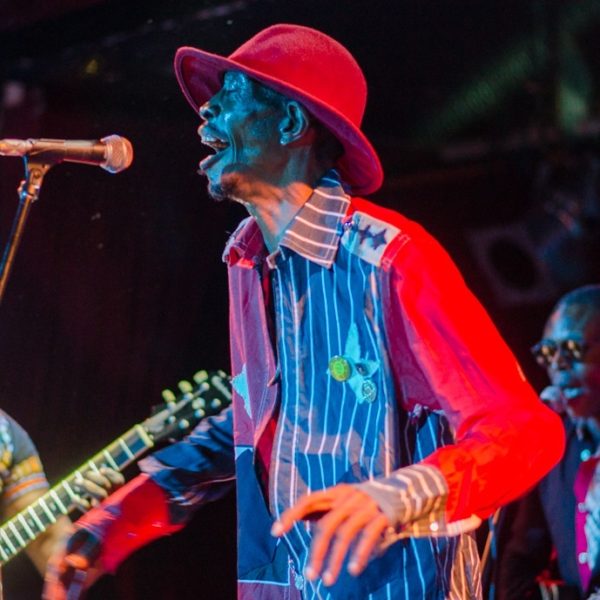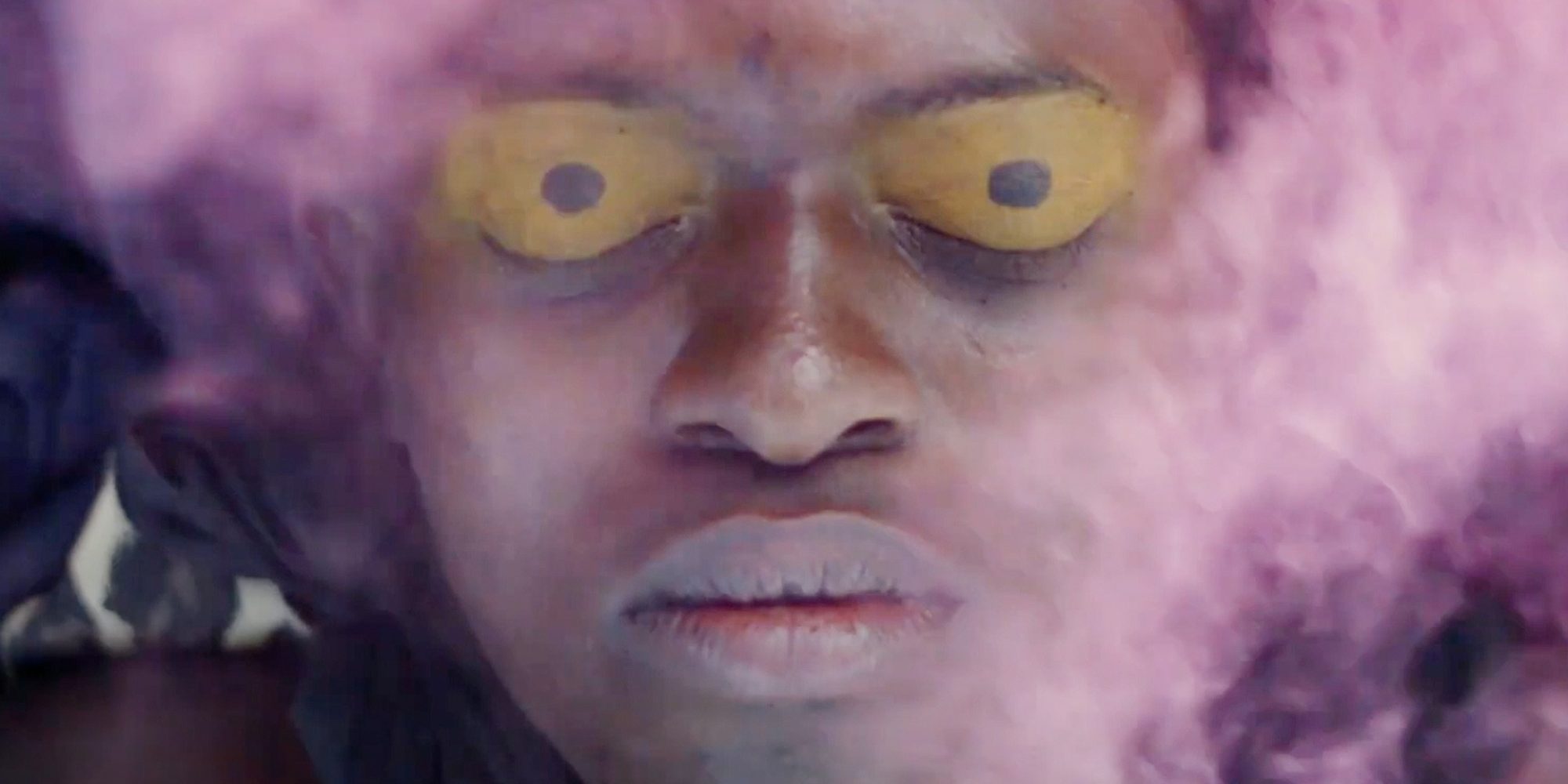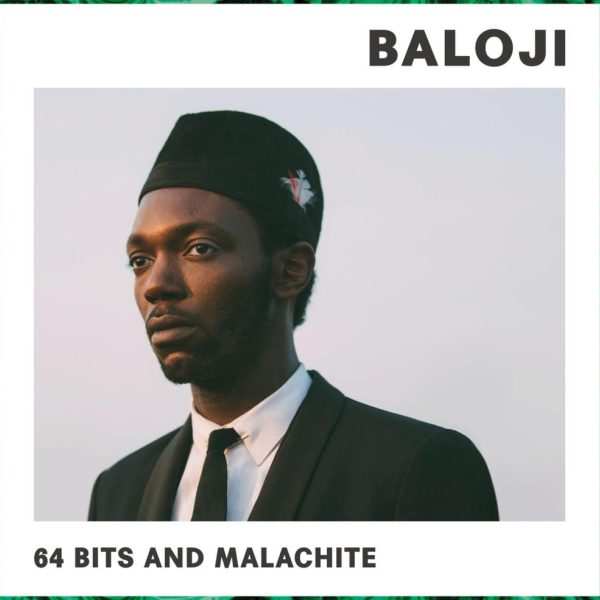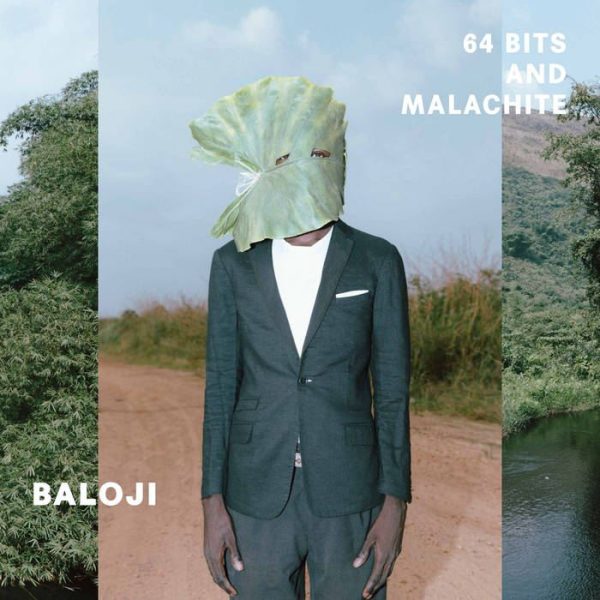The Belgian/Congolese rapper/composer/recording artist Baloji has always cut his own road, creating unclassifiable recordings and videos that reflect a broad and in some ways radical world view, full of provocative contradictions, ancient and modern elements colliding, all anchored in his deep, resonant, profoundly confident voice. Now Baloji has produced his first feature-length film Augure/Omen, a marvel of magic realism and sharp social commentary, all filmed during a 23-day shoot in Kinshasa.
So has directing films supplanted music in Baloji career? “I'm doing both,” he said, speaking English from his home in Brussels, “but nowadays I think I'm gonna be more director because film can combine multiple art forms, including music, which I think is important.” Augure/Omen is full of music, though not of the sort Baloji releases on his albums, and he does not appear in the film. Rather, the film centers around a Koffi, a Black Congolese man returning to his village from Europe with his white fiancé, Koffi’s very traditional, severe and disapproving mother, his bi-cultural sister dealing with cancer, an orphan boy who leads a street gang of boys who go into combat wearing pink dresses, a witch and a witch doctor, a Congolese coffin vendor who sings opera, and, among other memorable characters, a group of women who cry at funerals, much as the singer Papa Wemba’s mother used to do.
Baloji scripted the film with references to Disney films and fairy tales, among them, Peter Pan, Hansel and Gretel and Cinderella. After watching the film twice, I had a lot of questions, starting with what he was trying to communicate with it. “I'm just trying to do me,” he said. “I think we just have to be ourselves. And that's the only thing I'm trying to do is to just do my own universe.” Fair enough.
One striking element, is The Goonz, that gang of street boys in pink dresses led by the orphan Paco. Given the conservative officialdom in many African countries when it comes to issues of gender and sexuality, I was curious about this and other gender-bending moments in the film. “I just think that the best way to talk about it is not talking about it. The gender question is not a subject matter. It's there, and nobody questions it. And I think for me, the only way to talk about it is to normalize. It's just there. And in my point of view, that’s the only way to talk about it.” There is a lot of pink in the film, including clouds of pink smoke. I quipped that there’s almost as much pink as in Barbie. ““Yeah, I'm competing with her,” he parried.
As to the gender-bending, he allowed, “It's disturbing for a lot of people, of course. But that's their problem, not mine.” I won’t spoil how this unfolds in the film, but the subject is clearly important for Baloji, who dons a fulsome, emerald green dress and head wrap in his recent music video with Cape Verdean singer Mayra Andrade.
There are witches and witch doctors in the film, including one with a candy-coated house and an enormous caldron of steaming…well, one can only imagine. “For me,” said Baloji, “she is the most interesting figure to talk about, because it says a lot about our patriarchal society. She's considered as a witch. And all the women in the movie are considered as witches. And it's been the case for more than 500 years.” Patriarchy: “Another Barbie connection,” Baloji concurred.
As I mentioned, we do not see Baloji or hear his voice in the film’s fascinating musical soundtrack, full of Afrofuturistic traditional mixes and, notably, brass bands. “Congo has brass bands at funerals and social occasions,” said Baloji, citing a connection with New Orleans. “I've been to New Orleans, and New Orleans is fascinated by a certain idea of Africa. Every fanfare starts in a place called Congo Square.”
Coming to music, Baloji describes himself as a child of rumba and seben, the pumping, guitar-driven animation that concludes a standard Congolese dance number. By no means has Baloji left music behind. In fact, he is set to release a set of four albums this year, one for each major character in the film. Many characters in the film are named after famous Congolese singers, Koffi (Olamide), Tshala (Mwana), Malage, a singer in Zaiko Langa Langa… Baloji's recent EP, Omen, teases the concept with five songs named for four of the film’s characters. “Everything is connected to music.” The film’s closing funeral scene features a marching brass band interpreting the classic Franco song “Kinsiona,” which Franco wrote for his talented brother, who was killed in a tragic car crash.
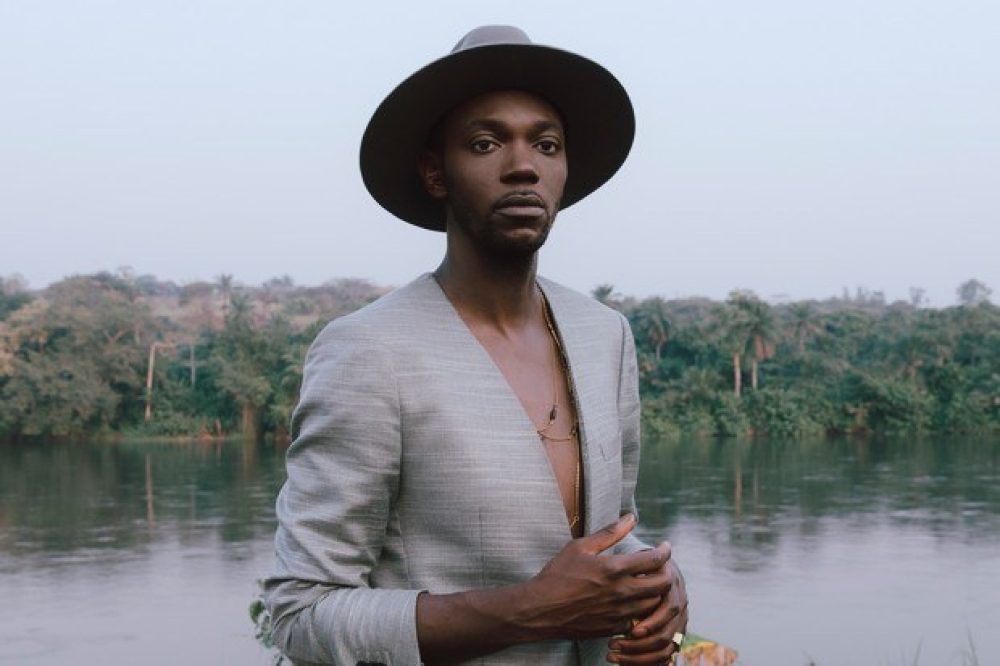
Baloji says Augure/Omen will to come to New York in April, as part of the New Directors/New Films festival at Lincoln Center. But our conversation made clear that the road to completion has not been easy. I reminded him of a comment he made to me years ago, when he was struggling to gain acceptance as a hip-hop artist. He told me that hip-hop was “the most conservative” music genre he had known. Looking back, he reflected, “I don't know if hip hop is the worst. To be honest with you, now I’ve discovered cinema.”
Related Audio Programs
